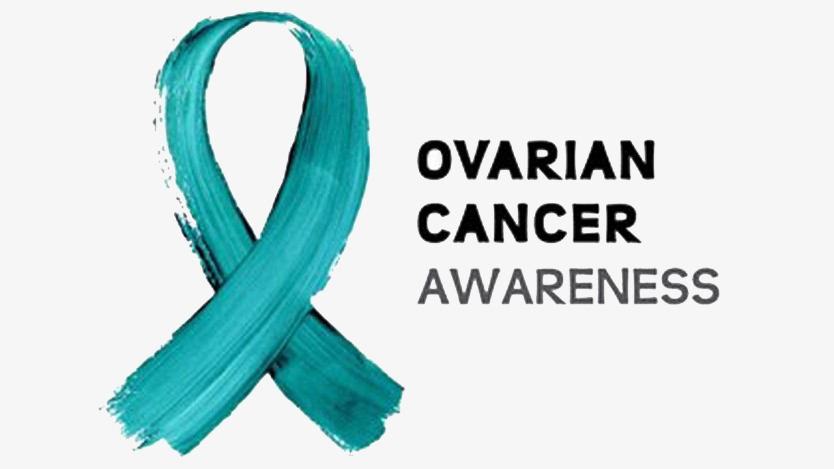In Campaigns
Follow this topic
Bookmark
Record learning outcomes
Let's hear it for the girls! There are many female focused health campaigns in March that your pharmacy team can get involved in, starting with...
Ovarian Cancer Awareness Month
Ovarian cancer is the UK’s deadliest gynaecological disease, claiming the life of another woman in the UK every two hours, according to the charity Ovarian Cancer Action.
Killing more women in the UK than womb, cervical, vulval and vaginal cancers combined, ovarian cancer can affect women of all ages with symptoms often being mistaken for less serious conditions like irritable bowel syndrome (IBS).
Early diagnosis is vital. If diagnosed at stage one, a patient has a 90 per cent chance of surviving for five years or more, but by stage four survival rate is as low as four per cent. Sadly, two thirds of those with ovarian cancer are diagnosed too late, when the cancer has already spread, according to the charity Target Ovarian Cancer.
In order to catch the disease in its earliest stages, customers should know the four main initial symptoms:
- Bloating
- Persistent stomach pain
- Frequent urination
- Difficulty eating
Due to a lack of knowledge surrounding these early signs, Target Ovarian Cancer has declared an awareness crisis.
"Only one in five women know that bloating is a symptom of ovarian cancer. Only one in 100 women know that needing to wee more often is a symptom and four in 10 women wrongly believe that cervical screening detects ovarian cancer," explains the charity. "This Ovarian Cancer Awareness Month, we're saying enough is enough."
Pharmacy teams can get involved by raising awareness within the community via campaigning and encouraging others to share symptoms and experiences within the community.
Target Ovarian Cancer offers a useful campaigning toolkit which contains a variety of ways to get involved to make sure your community's voice is heard.
You can also download infographics and leaflets, order awareness materials and follow and share Target Ovarian Cancer updates across social media.
“Enough is enough”
Starting small
Means three GPs can access training to ensure early diagnosis of ovarian cancer.
Helps 50 people learn about the symptoms of ovarian cancer and crucially when to visit the GP through leaflets.
Means Target Ovarian Cancer’s support line can help up to 10 people who need advice and information they can trust.
Get involved!
Target Ovarian Cancer are running a variety of events across the month to help raise awareness. These include:
- The 11,000 Steps a Day Challenge. 11 women die from ovarian cancer everyday, the 11,000 steps a day challenge aims to help raise money to stop this from happening. All you need is a smartphone to track your 11,000 steps a day and some friends to walk with!
- Run for Mum. This Mother's Day (27 March) run for someone you remember, for someone you know or for future generations affected by ovarian cancer.
- Bake for Change. Get together with colleagues and customers alike for a bake sale or coffee morning and help raise money to fund all important research.
For more fundraising ideas visit the Target Ovarian Cancer website.
Endometriosis Awareness Month
Endometriosis is a condition where cells similar to the ones in the lining of the womb are found elsewhere in the body. Each month these cells react in the same way to those in the womb, building up and then breaking down and bleeding. Unlike the cells in the womb that leave the body as a period during menstruation, this blood has no way to escape.
One in 10 women and those assigned female at birth are living with endometriosis, meaning there are more than 1.5 million people who need support and information to help them understand this chronic condition.
Endometriosis UK are a small organisation who want to improve the lives of those affected by endometriosis and work towards a future where it has the least possible impact on those living with the condition.
Symptoms of endometriosis include:
- Painful periods
- Pain during or after sex
- Pelvic pain
- Tiredness/lack of energy
- Spotting or bleeding between periods
- IBS symptoms
- Pain when passing urine.
Endometriosis can affect a person throughout puberty until the menopause, although symptoms can last long after this. The disease can have a significant impact on a person’s life in a number of ways including:
- Chronic pain
- Fatigue/lack of energy
- Depression/isolation
- Problems with a couple’s sex life/relationship
- An inability to conceive
- Difficulty in fulfilling work/social commitments.
To raise awareness of this chronic condition, Endometriosis UK has named March as Endometriosis Awareness Month.
“March is a really important month for the endometriosis community," says Emma Cox, CEO of Endometriosis UK. "We’re really grateful to everyone who has helped make noise and spread awareness of endometriosis in previous years, and we can’t wait to get going with Endometriosis Action Month this year.”
Pharmacy teams can get involved by signposting customers to information in the pharmacy. Workplaces can also become an Endometriosis Friendly Employer - which encourages organisations to create an open environment for talking about endometriosis.
Visit the Endometriosis UK website for more resources, including leaflets and petitions.
Get support
Endometriosis UK has set up a network to offer those affected by the condition the support and information they need to understand it and take control.
Customers who come to the pharmacy looking for answers can be signposted to:

